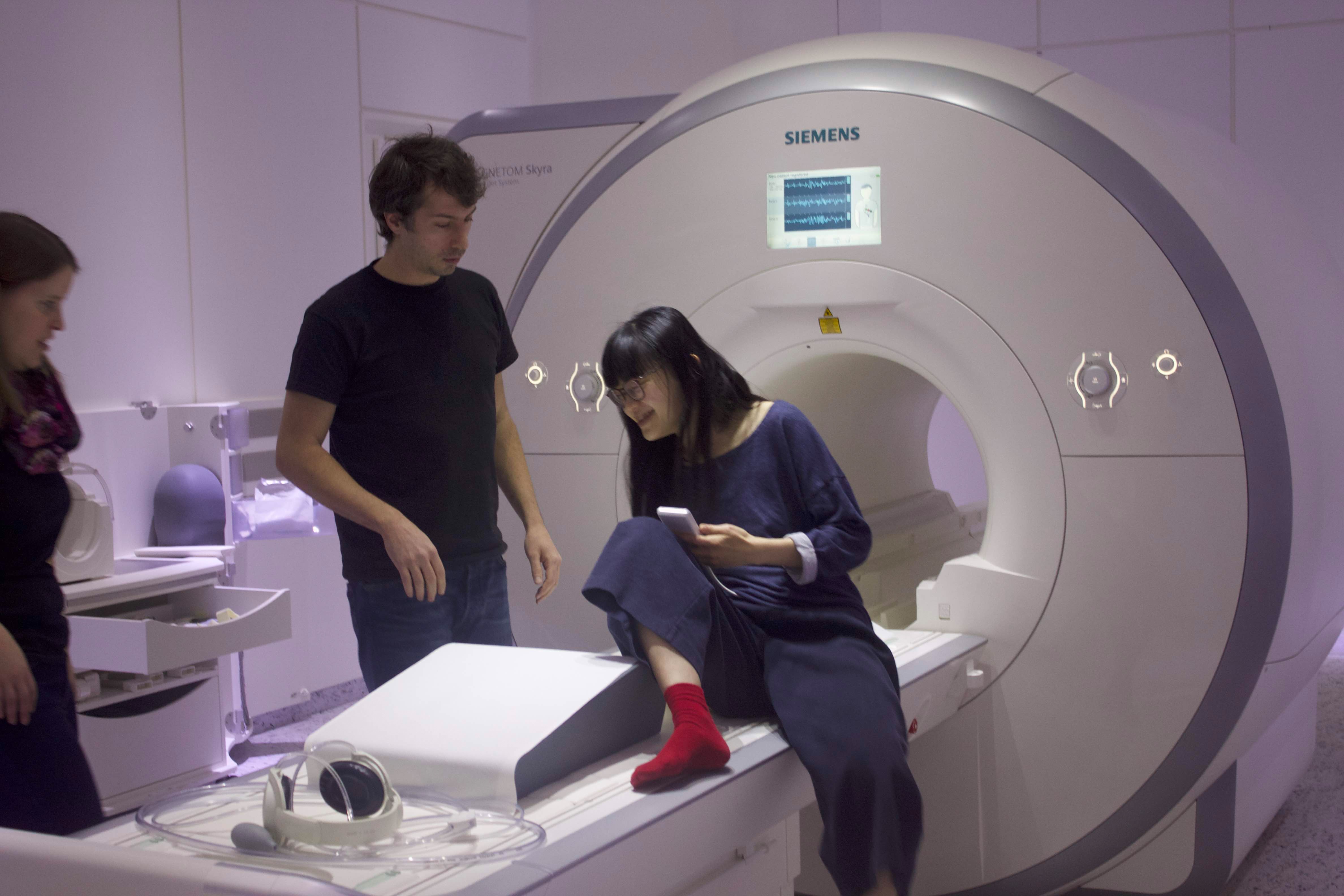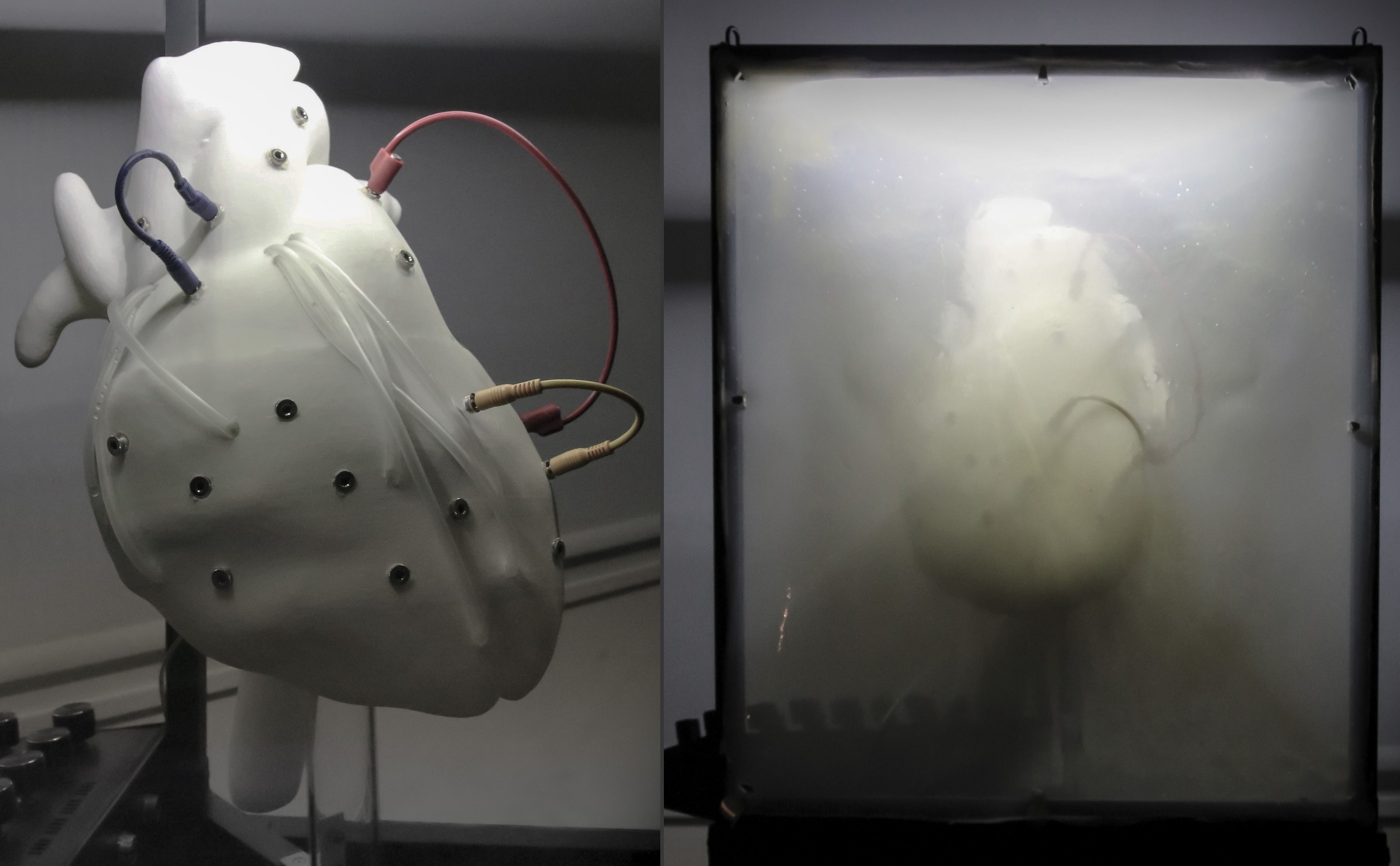Yen Tzu Chang is the recipient of the artist residency jointly hosted by Fraunhofer MEVIS and Ars Electronica in the framework of the “European Digital Art and Science Network.” Ars Electronica created the international initiative to enable artists to participate in residencies at prestigious research institutes to connect science with digital art approaches. Chang will present the results of her work during the performance of “Whose Scalpel” at the Ars Electronica Festival in Linz from September 7 to 11.
“STEAM Imaging” is the pilot residency program of Fraunhofer MEVIS. STEAM stands for the connection of science, technology, and mathematics with the world of art. During her two-week stay in Bremen, Yen Tzu Chang, who specializes in experimental sound performances and creating customized electronic instruments, learned a software platform for medical imaging development (MeVisLab). Researchers employ this tool primarily to develop assistance systems to help physicians with diagnosis, therapy, and monitoring serious diseases such as cancer. These researchers develop algorithms, for instance, to accelerate and refine the analysis of MR and CT images and also to extract information otherwise concealed in the images.
“Using the MeVisLab software platform, I was able to process my own medical image data and create movies and a 3D model for my performance,” the artist explains. As part of her residency, she developed a workshop alongside researchers in Bremen for pupils connecting digital media art with science in an innovative way – a new approach in science communication.
The result of the residency is a unique art project: “Whose Scalpel” addresses the future of the human-machine relationship in surgery. The installation is based on a 3D printed model of the artist’s heart equipped with lights and electronic sound generators. During the performance, guided by artificial intelligence, Yen Tzu Chang acts as a ‘surgeon’ and places a bypass with the help of cables. “The installation should raise the question of what humans lose when the computer takes charge,” explains Chang.
The performance will be presented at the Ars Electronica Festival, one of the important media art events worldwide. An international conference, “The Practice of Art and Science,” will take place during the festival, giving leading research institutes and artist the opportunity to discuss their experiences in integration of artistic projects. Bianka Hofmann, head of corporate communications at Fraunhofer MEVIS, will present the goals and results of STEAM Imaging. Together with workshop leader and MEVIS researcher Sabrina Haase and artist Yen Tzu Chang, visitors will have also the opportunity to experience elements of the pupil workshop. During a live broadcast from the MRI lab in Bremen, visitors can talk to experts and be present while new data is being gathered. Afterwards, visitors will be able to experiment with medical images of the human body using a simplified version of MeVisLab.
Both the MRI scanner and the software platform for developing medical imaging data were central features of the workshops that were part of Chang’s residency program. Middle schoolers from Bremen and Linz were able to digitally process 3D image data of the head and torso and create short artistic videos using the software. They controlled a computer program that generated electronic sounds based on the image sequences. The pupils made 3D images of handmade models and fruits using the MRI scanner. They recorded the sounds made by the device and combined them with those of everyday objects to produce a unique sound performance. An external evaluation of the workshop revealed encouraging results: many pupils were fascinated with science.
“The young generation responds directly to such kind of interactive science communication format,” says Hofmann. By connecting art and research, the workshops address different groups. “In addition, this interdisciplinary approach increases the chances for real dialog between scientists, artists, and pupils,” Hofmann explains. “The researchers also had to leave their comfort zone and deal with the perspectives of the pupils and the artist.” In addition, during the artist residency, a discussion began among scientists at the institute about the ethical issues that arise in medical research. It is an important debate that calls for the involvement of the whole society.
Fraunhofer MEVIS will continue its science communication activities. In addition to established forms such as 2D and 3D movies and interactive exhibits for museums and exhibitions, the institute will develop further dialog-oriented projects with and for the next generation to discuss the influence of new technologies at an early stage. The artist residency with pupils was the pilot project. The goal is to penetrate and discuss scientific and technical topics with the public and coming generations and to expand digital expertise.
 Fraunhofer Institute for Digital Medicine MEVIS
Fraunhofer Institute for Digital Medicine MEVIS
